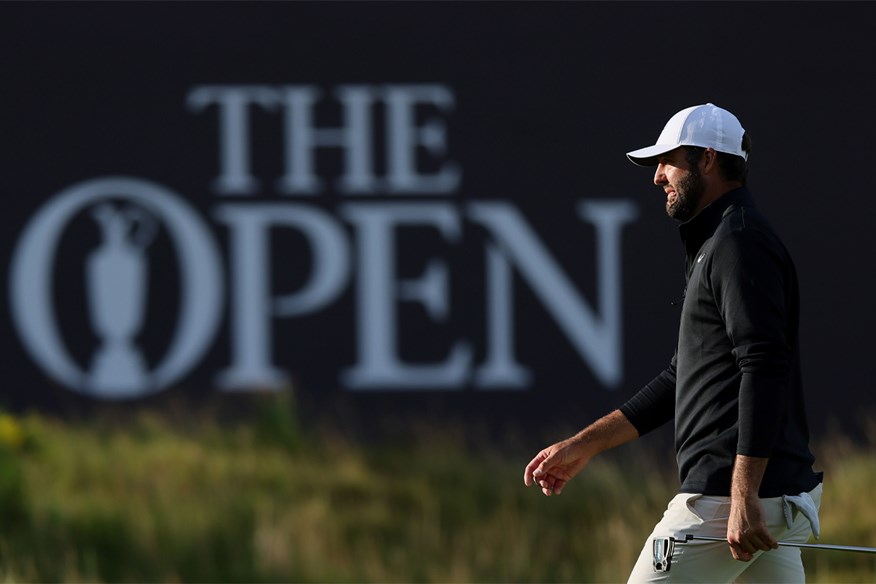Scottie Scheffler’s Open victory was the most important golf lesson you could ever have
Last updated:
Scottie Scheffler’s brilliance from tee to green is obvious – but his greatest strength might be something far more human. In this personal piece, Rob McGarr explores what the World No.1 teaches us about golf – and life.
In most major victories, there’s a single, defining moment during Sunday’s final round, where you can practically hear the scales begin to tip in favor of the would-be champion. Even if there’s plenty of golf left to play, it’s the moment the trophy engraver leans forward in his chair and starts checking his spelling sheet.
Tiger’s chip-in at Augusta’s 16th. Bubba’s hooked wedge from the pine straw. Seve from the car park. Spieth from a different car park. Jean van de Velde in the Barry Burn, shoeless and sinking.
This year, at Royal Portrush, the moment was a little different.
As Scottie Scheffler holed a 15-foot putt on the 7th hole, Nick Faldo fell off his chair. Not due to excitement – the World number one had merely saved par to maintain a blemish-free scorecard and a seven-shot lead – but thanks to some fragile furniture in the commentary booth.
“That might be the most exciting thing of the day,” quipped the three-time Open champ, pulling himself upright.
And, well, he wasn’t wrong.
Few outside the Scheffler camp wanted a drama-free procession, but even the most adventurous storyteller would have struggled to suggest anything else was on the cards.
Golf’s most dominant player started the day with a four-shot lead. He had some stellar names on his tail – with Matt Fitzpatrick, Rory McIlroy, and Xander Schauffele among a sizable chasing pack – but victory looked almost certain.
“There’s a different wind on this hole today,” one hopeful fan had remarked when Scheffler arrived on the 1st tee. “He could make double, someone else has a hot start, and suddenly it’s on.”
Scheffler stepped up, hit a safe tee shot, stuck his approach to a foot, and tapped in for birdie.
There goes that idea.
What did we expect? The 29-year-old is now 10-for-10 converting 54-hole leads. He’s unflappable. Clinical. Inevitable.
Faldo highlighting Scheffler’s boringness is somewhat ironic – the Englishman was renowned for being an impassive perfectionist – but he was merely echoing a sentiment that was apparent all around the Dunluce Links.
When a 15-footer dropped on the 5th for Scheffler’s third birdie of the day, it was met with almost awkward silence from the crowd and no reaction from the man himself.
Those Open crowds, usually infinitely respectful, let out a few cheers on the 6th when Scheffler’s tee shot tumbled off the green. Would this be the start of a wobble? Hope for the chasing pack? Some drama at last? Scheffler pitched to 16 feet and, you guessed it, rolled it in the heart of the cup.
There was a clear “Yes!” from some fans as he made an uncharacteristically clumsy double bogey on the 8th – his first real mistake of the week. Not malicious, just desperate for jeopardy. That gasp of possibility barely lasted one hole. Scheffler birdied the 9th and stretched his lead again.
It’s not that anyone dislikes Scheffler. How can you? He’s polite. Genial. He doesn’t break clubs or smash up fairways. He doesn’t swear in front of kids. It’s hard to imagine him even putting a yoghurt pot in the general waste because he can’t be bothered to rinse it out for recycling.
But the crowd wanted a fight. They wanted Rory. They wanted a home charge or a Seve-style miracle. And what they got was an emotionless masterclass.
The galleries for Rory were five times as deep – and 10 times as loud – despite the fact that the Northern Irishman never had a real hope of victory.
Home favoritism was a factor, of course, but it’s not the whole story.

The similarities – and differences – to Tiger Woods
Scheffler’s dominance in recent seasons is reminiscent of Tiger Woods – “I never thought in my lifetime I’d see a player as close to Tiger as this man currently is,” said caddie Jim ‘Bones’ Mackay – but that’s where the similarities end.
When Tiger dominated, it was blockbuster stuff. He broke the mould. He hit impossible shots. Roared and fist-pumped when they came off. He fired at pins when he shouldn’t. He did things no one ever thought possible. Winning by record margins was part of the narrative.
When Scheffler dominates, it’s robotic. He never seems to make mistakes. Rarely shows a hint of emotion. He keeps it in play off the tee. Hits it to 15 or 20 feet. Barely breaks a sweat. Off the top of your head, can you name five heartbeat-raising Scheffler moments? Well, he got arrested that one time, and, err…
And that’s the difference. Not in ability, but in spectacle.
Tiger was a firework. Rory’s a rollercoaster. Scottie is a robot.
But here’s the thing: he might not be the hero the golf world wants, but he’s the one it needs right now.
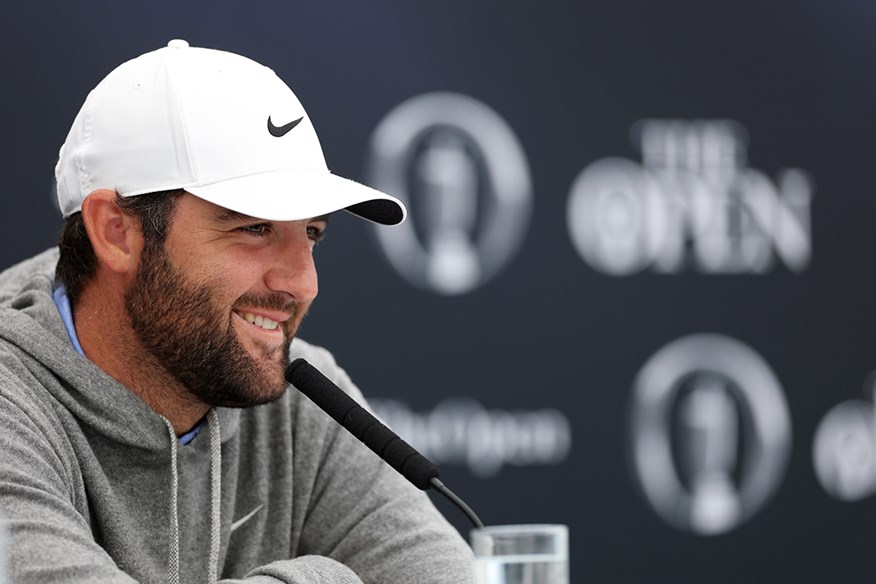
Beyond the birdies
In an age where the pressure to succeed and the ease of comparing oneself to others are greater than ever, Scheffler reminds us to keep it all in perspective.
At Tuesday’s pre-tournament press conference, he dropped a truth bomb that left most of the room blinking.
“I’m not out here to inspire the next generation of golfers,” he said. “I’m not out here to inspire someone to be the best player in the world, because what’s the point? This is not a fulfilling life… not from the deepest places of your heart.”
I was sitting near the front as the world’s most dominant golfer opened up in a way he didn’t need to. Tiger had an art of saying a lot without saying anything. It was deliberate. Why share any vulnerability? Why show your opposition that you’re human?
But here was the best golfer on the planet, not talking about reps, goals, legacy – or, snore, whether he’d be adding a driving iron to his bag this week and hitting the ball lower than normal to deal with links golf – but existential doubt.
Would Tiger ever have done the same? Not in your life.
“There’s a lot of people that make it to what they thought was going to fulfill them in life, and you get there, and you’re like, what’s the point?” asked Scheffler. “I really do believe that, because what is the point? Why do I want to win this tournament so bad?”
Many successful people have described an unexpected emotional whiplash that follows when their lifelong dreams come true. But most do so when they’re looking back at the end of their careers, not when they’re right in the middle of it, with potentially close to two decades of peak performance still ahead of them.
That post-victory anticlimax, Scheffler admitted, has led him to regularly question the meaning behind it all.
“That’s something I wrestle with on a daily basis. Showing up at the Masters every year, it’s like: why do I want to win this golf tournament so badly? Why do I want to win The Open Championship so badly? I don’t know because, if I win, it’s going to be awesome for two minutes. Then we’re going to get to the next week – and we’re back here again.
“We work so hard for such little moments. I love putting in the work. I love getting to practice. I love getting to live out my dreams. But, at the end of the day, sometimes I just don’t understand the point.”
Some misconstrued Scheffler’s comments as miserable. He got some hate on social media. For those who would give anything to swap places with him, his sentiment was hard to comprehend. Some took his words as a message that he doesn’t even like golf that much. Nothing could be further from the truth.
“I love the challenge,” he continued. “I love being able to play this game for a living. It’s one of the greatest joys of my life, but does it fill the deepest wants and desires of my heart? Absolutely not.
“This is something you can have a great appreciation for… but it’s not what satisfies me.
“This is not the most important thing in my life. I’d much rather be a great father than I would be a great golfer. At the end of the day, that’s what’s more important to me. If my golf ever started affecting my home life or the relationship I have with my wife or my son, that’s going to be the last day that I play out here for a living.”
And I genuinely believe he meant that.
“I guess what I’m trying to say is that this is not the place to look for your satisfaction. This is something you can have a great appreciation for and a great amount of thankfulness for being able to do this. It’s literally one of the most fun things I can do in my entire life. I love being able to come out here and compete, but at the end of the day, it’s not what satisfies me.”
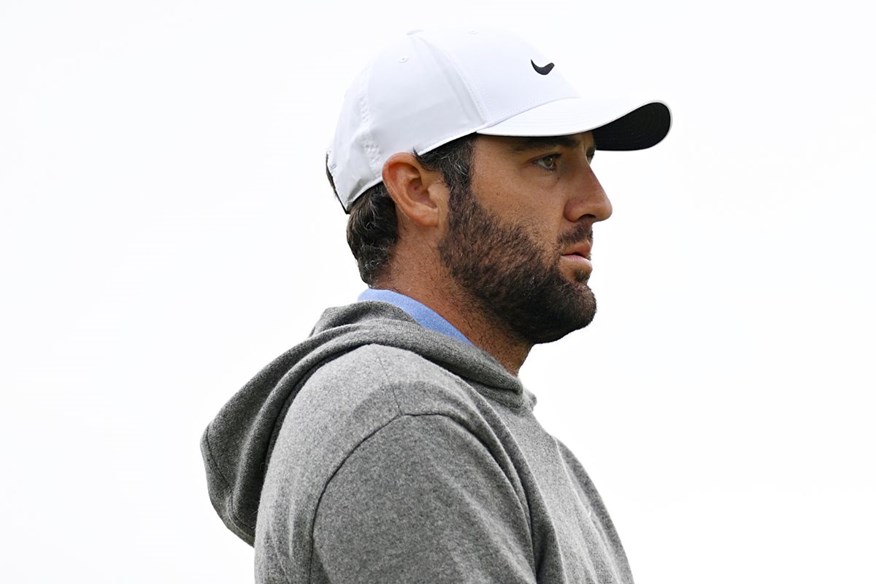
Lessons in golf… and life
One of the first golf pros I ever had lessons with had a pro shop overlooking the 18th hole. He told me that when he looked out of the window and saw me walking down that final hole, he wanted to not be able to tell whether I was finishing a great round or a terrible one. He extolled the benefit of managing your emotions, staying impassive, and maintaining positive body language through highs and lows.
At the time, I thought this was golf advice. But Scottie Scheffler has helped me realize it was far broader than that.
The stats show that Scheffler is the world’s best with a driver in his hand. He hits better approach shots than anyone. His short game is up there. His putting, once considered his only weakness, is now anything but. But his superpower is something that cannot be measured in strokes gained statistics.
It’s that mental approach and perspective.
Scheffler isn’t ice-cold because he doesn’t care. It’s because he cares just enough.
He has the drive and desire to practice as hard as anyone. Golf is what he dedicates his life to – but it’s not his whole life. And that’s a key distinction.
“I don’t think that I’m anything special just because some weeks I’m better at shooting a lower score than other guys are,” he said after winning by four at Portrush.
He’s learned not to let victory or defeat define him. That your best round doesn’t make you better than anyone else. That your worst shot doesn’t make you a failure. That you can love something deeply without needing it to validate your worth.
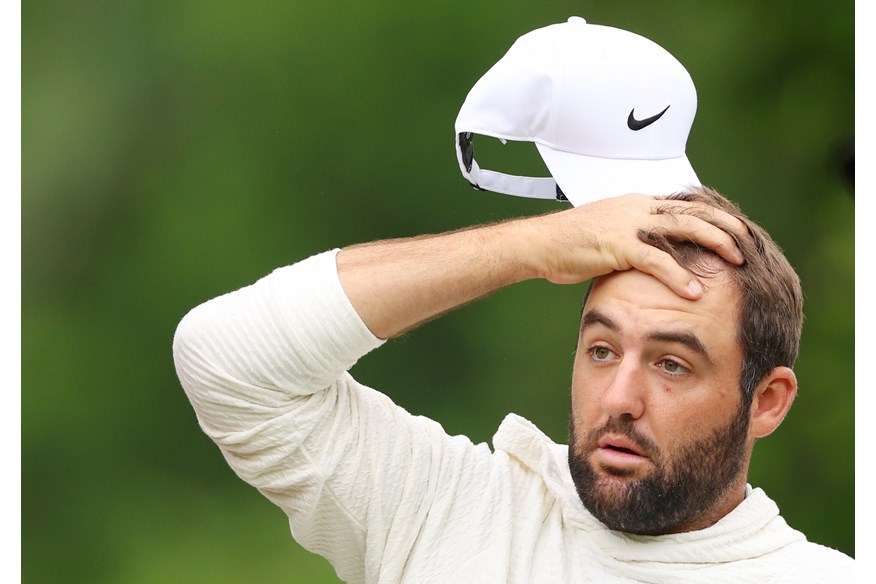
A new Scheffler
It’s easy to look at Scheffler and assume he was just built that way. That trying to add passion to his game would be like trying to calm Tyrrell Hatton or reason with a Tasmanian devil (which may actually be the same thing, come to mention it).
But, Scheffler insists, he wasn’t always like this.
“I’d get a bit headless at times when I was growing up, especially when I was young, and I see it in my son now,” he said. “I’m like, this poor kid’s got my personality. It’s tough.
“I had a high level of frustration growing up. I still do today, but I’m better at masking it and controlling it and using it more as a strength to help me focus. When I was young, I would either hold it in or kind of blow up. Now I think I do a better job of holding it in but also getting it over to the next shot and almost sharpening my focus to where I’m in a better spot after a bit of frustration than I was before.”
If Scheffler can go from hot-headed youth to the most calm and collected man golf has ever seen, there’s hope for all of us.
I’ll never be anywhere near as good at golf as Scottie Scheffler. Chances are, nor will you. I’m never going to make a penny playing tournament golf. I know this and have known this for a long time. But, on more than one occasion, I’ve given up the game because I’ve let it affect me too much. I’ve allowed my handicap to become tied to my self-worth. I’ve always known that doesn’t make sense – nothing in my life will change whether I shoot 65 or 165 – but knowing something and feeling it are two different steps on the same journey.
Scottie Scheffler is a role model in keeping it in perspective. If you want to be like Scottie, don’t just copy his textbook grip. Copy the way he tries to get the best from himself each day, while knowing there are things beyond his control – and not letting them spill over into other areas of his life.
Doing that will help you play your best golf. More importantly, it will help you get the most joy from your golf. And – even more importantly than that – it will help you get the most from life.
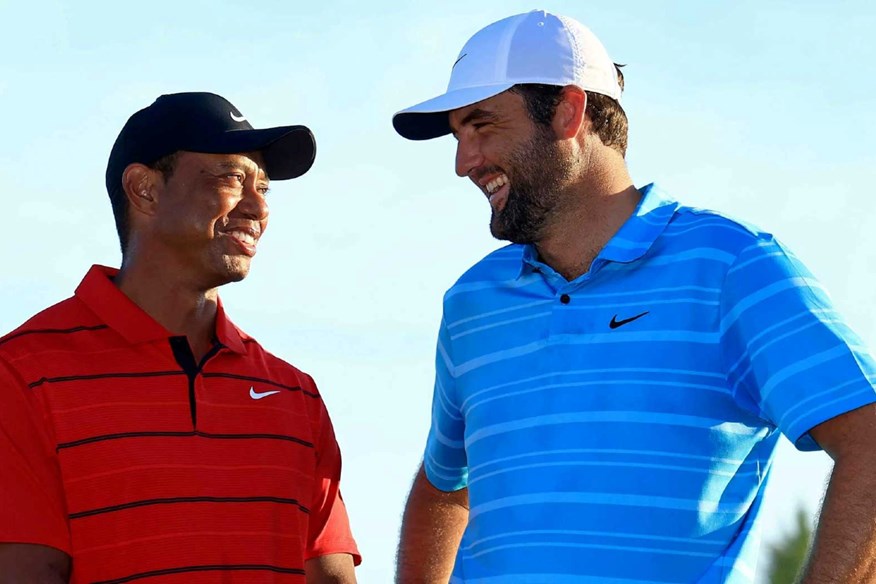
Scheffler the Special One
Those who don’t love Scheffler as golf’s leading man had better learn to.
His Portrush victory was his 10th straight win when holding the outright 54-hole lead. It’s the longest such streak since Tiger Woods, though he has some way to go to match that record – Tiger did it 37 consecutive times.
Scheffler took 10 attempts to win his first major and now has four victories from his first 25 Grand Slam events.
Tiger took seven attempts to win his first and notched six in his first 25 major starts.
If Scheffler wins next year’s US Open, he’ll complete the Career Grand Slam in his 28th start. Woods already had that honor wrapped up in his 21st appearance.
One area where Scheffler does have the one-up on Tiger is his ownership of an Olympic Gold Medal. If – sorry, when – Scheffler wins the US Open to complete the Career Grand Slam – he’ll be the first man to have won all four majors and the Olympics.
But trying to compare him to Woods will always be a fruitless endeavour. Enjoy him for what he is: not the next Tiger, but the first Scottie.
